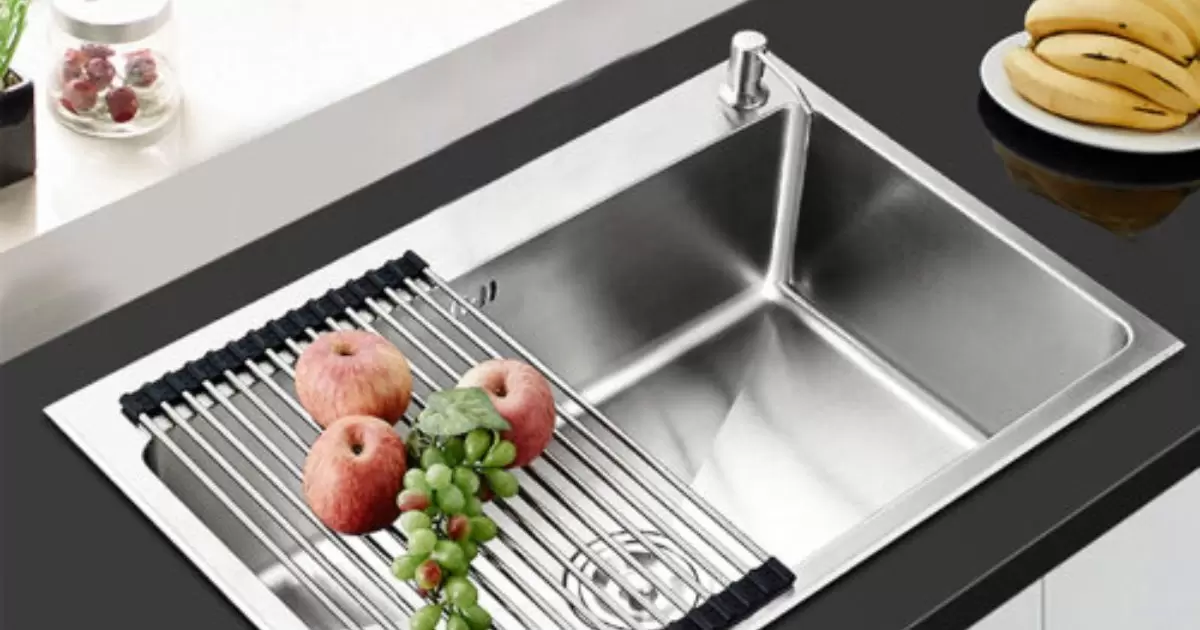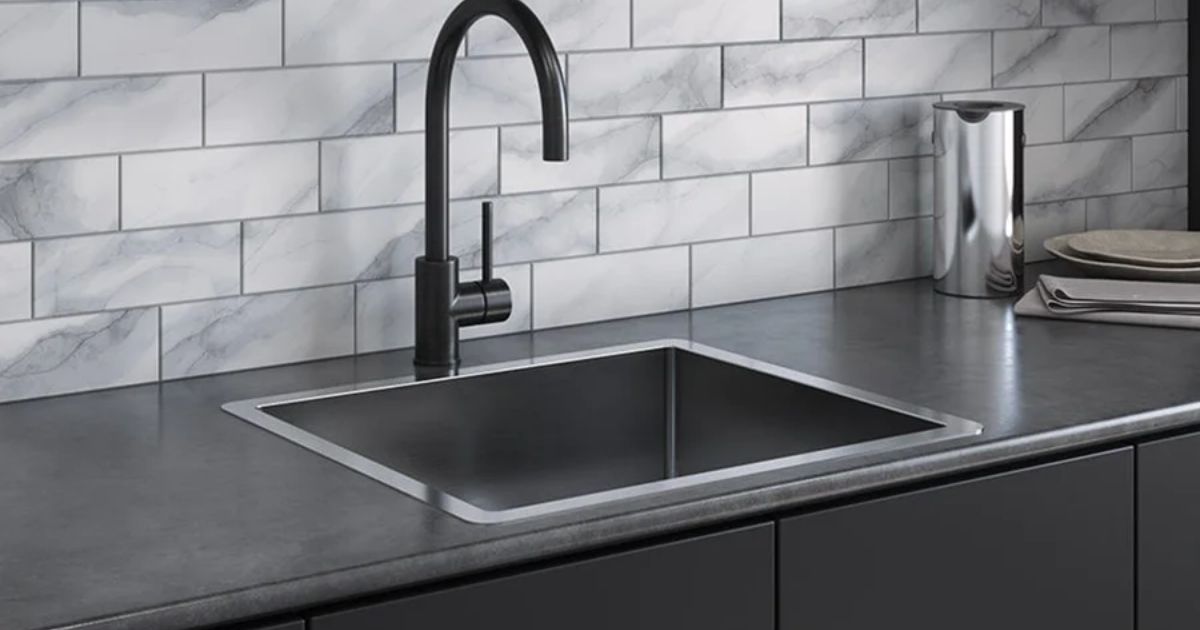When selecting a stainless steel sink for your kitchen, one of the key considerations is the material’s gauge. The best gauge for a stainless steel sink typically ranges from 16 to 18. These gauges strike a balance between durability and affordability, making them a popular choice for both residential and commercial kitchens.
Are you in the market for a new kitchen sink but overwhelmed by the choices? Understanding the importance of stainless steel gauge can be the deciding factor for a sink that combines longevity with performance. Let’s dive into what makes 16 to 18-gauge sinks the top contenders.
The gauge of a stainless steel sink refers to its thickness. A lower gauge means thicker steel, which generally translates to a more robust and quieter sink. The best gauge for a stainless steel sink ensures it is sturdy enough to withstand daily use without denting easily. How much is stainless steel per pound?
The Appeal of Stainless Steel Sinks
Stainless steel sinks offer a sleek, modern look. But beyond aesthetics, stainless steel provides extreme durability and stain/scratch resistance compared to materials like porcelain or enamel. Stainless is also relatively affordable, especially thinner gauges. But what’s the best balance of cost, functionality, and longevity?
What Gauge Means
Gauge refers to the thickness of the stainless steel used to construct the sink. Lower gauge numbers indicate thicker steel, while higher gauges are thinner. Most sinks range from 16-gauge (thinnest) to 10-gauge (thickest). The gauge heavily impacts a sink’s durability, dent resistance, noise levels, and cost.
Durability
Heavier-gauge sinks are extremely durable and dent-resistant. Thin 16-gauge sinks can suffer dings, scratches, and discoloration more easily. Sinks below 14-gauge are vulnerable to damage from dropped cookware. For maximum durability, 10-12 gauge sinks are practically indestructible for decades.
Cost
Thicker stainless steel requires more raw materials, driving up costs. Going from a 16-gauge to a 10-gauge sink could double or even triple the price. Those wanting an affordable stainless sink often opt for 14 or 16-gauge. Higher-end kitchens invest in nearly indestructible 10 or 12-gauge sinks.
Recommended Gauges by Sink Type
Kitchen Sinks
The most used sink, kitchen varieties should offer sufficient durability without excessive noise. The best balance for most kitchens is a 14-gauge stainless steel sink. While not the cheapest option, 14-gauge delivers quieter performance and decent resistance to dents and scratches without the ultra-high price tag of a 10-gauge sink.
Prep Sinks
Found in island counters or butler’s pantries, prep sinks handle lighter-duty tasks like cleaning fruits/vegetables and require less durability. For prep sinks, thinner 16-gauge stainless offers an affordable option that still resists stains and scratches. Some noise is acceptable since running water or washing dishes isn’t the main use.
Bar Sinks
With bar sinks used frequently for tasks like washing glasses or producing, durability and noise are bigger considerations. A thin 16-gauge sink leads to rapid damage. Instead, the best bar sink gauge is a thicker 13 to 14-gauge stainless to prevent noise, scratches, and dents for years while keeping costs reasonable.
Stainless Steel Sink Gauge Comparison
This table will come under the heading Understanding Sink Gauges and Their Impact.
| Gauge | Thickness (inches) | Pros | Cons |
| 16 | 0.0625 | Durable, less noise | More expensive |
| 18 | 0.05 | Good durability, affordable | Slightly less resistant to dents |
| 20 | 0.0375 | Cost-effective | Prone to dents, noise |
| 22 | 0.03125 | Very affordable | Not recommended for heavy use |
FAQs:
Which is better 18 or 20-gauge stainless steel sink?
18 gauge is thicker and more lasting than 20 gauge, offering higher resistance to dents and scratches.
What’s better 16 or 18-gauge stainless steel?
16 gauge is thicker and more potent than 18 gauge, providing higher durability and much less susceptibility to dents and dings.
Is a 14 gauge sink better than a 16 gauge?
A 14 gauge sink is thicker and sturdier than a 16 gauge sink, providing superior durability and resistance to dents and damage.
Which grade of stainless steel is better 304 or 316?
Both are first-rate picks, but 316 chrome steel gives higher corrosion resistance, making it ideal for environments with excessive chloride publicity, which include coastal regions or business settings.
Is an 18 gauge sink good?
Yes, an 18 gauge sink is a great choice for maximum residential programs, imparting a balance between durability, price, and performance.
What is the best grade for stainless steel sinks?
The best grade for stainless steel sinks is typically 304 stainless steel. It offers excellent durability, corrosion resistance, and affordability, making it a popular choice for residential and commercial applications.
Conclusion:
In the end, the best gauge for a stainless steel sink in large part relies upon your specific needs and budget. The gauge refers to the thickness of the steel, with a lower gauge indicating a thicker cloth. The maximum popular gauges for stainless steel sinks are 16 and 18, supplying a balance of sturdiness and affordability.
A sixteen gauge sink, being thicker, provides advanced durability and is right for heavy-duty use. however, an 18 gauge sink, even as barely thinner, is frequently the high-quality desire for most residential kitchen sinks as it can withstand everyday wear and tear without breaking the financial institution. it’s crucial to understand that even as a lower gauge might also provide more sturdiness, it may additionally be extra expensive.
Consequently, when asking what is the exceptional gauge for a stainless-steel sink? recollect factors like sink utilization, price range, and preferred sturdiness to make a knowledgeable decision.











